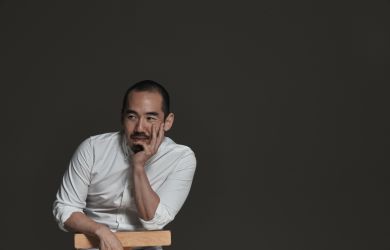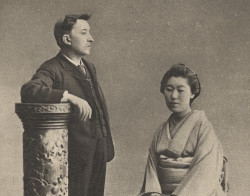
Originally published on metropolis.co.jp on October 2011

I guess it’s the T-shirt factor. When an audience shows up dressed in baggy shorts, flip flops and other attire more suited for a day at the beach than for a classical concert by world-renowned pianist Michie Koyama, then standards are sure to slip slightly.
Holding the concert at Saitama City’s less-than-glamorous Bunka Center on a Sunday afternoon probably didn’t help to set the right tone either. Nevertheless, proceedings got off to a fair start with the Tokyo Newcity Orchestra, under the baton of Daisuke Soga, warming up the hall with a spirited rendition of Glinka’s Ruslan and Ludmilla Overture. This prepared the way for star attraction Michie Koyama to stride onto the stage before the audience of nearly 2,000.
As the fourth prize winner of the prestigious International Frederic Chopin Piano Competition in Warsaw in 1985, Koyama has held her own with some of the best in the world, at least in her competing days, but one can’t help wondering whether marketing decisions may not have weighed at least a little on the jury especially with vast sales of classical music in Japan in the balance.
Dressed in a green evening dress, she received a rapturous reception and placed herself delicately on the piano stool for one of the greatest challenges in any pianist’s repertoire, namely Rachmaninoff’s tempestuous Second Piano Concerto, a brilliantly interlinked succession of lithe, swirling, throbbing passages of music and poignant interludes.
Whether due to the hall’s notoriously bad acoustics or because the still youthful Mr. Soga had been too in awe of the mighty Michie to work out a sonic approach that worked in this particular venue, Koyama’s emotionally sound interpretation of the piece was occasionally buried under the orchestration. Nevertheless, her performance was a winner on points, especially in view of the fact that a piece written to be played by a long-fingered giant of a man—Rachmaninoff was 198cm tall—was ably covered by the petite, short-limbed Japanese pianist.
As we approached the twenty-minute break, one suspected that she may have exhausted herself, but she seemed to be hiding it well with her trademark tight-lipped smile, taking her bows and walking off to change into a brilliant rose-colored dress for the second half of the performance.
In addition to her Chopin prize, one of the laurels from her early days was third place at the Moscow Tchaikovsky Prize back in 1982—so the work of that famous composer is very much a part of her repertoire. Accordingly Tchaikovsky’s overly famous First Piano Concerto was to provide the second installment of the afternoon’s entertainment, as some visitors traipsed back to their seats after apparently visiting the local conbini for ice cream on what was an unseasonably hot day.
The sighs of recognition that greeted the bombastically romantic opening melody told us we were in the midst of an enraptured middle-brow audience who may or may not have been equipped to fully appreciate the neurotic noodlings that meander off on tremulous tangents in the remainder of the piece.
Often castigated as a disjointed body of music, this concerto only makes sense played by a pianist who fully understands and indulges the foppish funks, fussy delicacy, and strident pomposity that were all part and parcel of Tchaikovsky’s complex personality. After going twelve rounds with Rachmaninoff, Koyama clearly wasn’t up to such a feat of emotional imagination, with the result that this awkward piece of music started to unravel into its component parts, whilst soloist, conductor, and the partially T-shirted audience seemed scarcely concerned about such disintegration.







